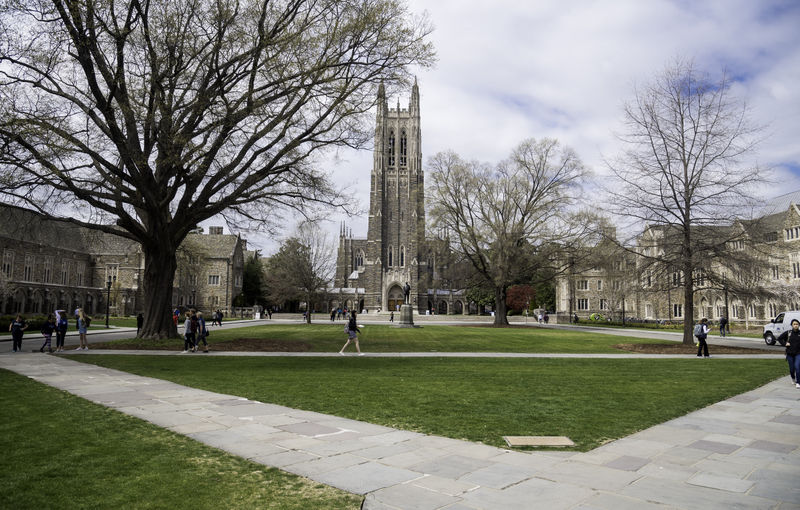Duke Energy Officials Admit “High Risk” of Key Element in Carbon Plan
- NC WARN

- Sep 17, 2024
- 3 min read

Duke Energy’s 2022 promise to investors [1, pg. 18] that it will pour $75 billion into high-voltage transmission projects in its monopoly states by 2032 was belied recently when its expert witnesses admitted to NC regulators that building new transmission corridors could meet such local opposition “that you can’t move forward with it.” [2, pg. 167] [3, pg. 48].
The statements were made under oath during questioning at NC Utilities Commission hearings over Duke’s Carbon Plan. Although in 2022 Duke quietly indicated plans to build hundreds of miles of new transmission in eastern NC, this is the first time any specific plan was hinted at – along with the enormous risk to investors and ratepayers posed by such a gamble.
Since 2022, NC WARN and eastern NC community groups have criticized Duke Energy’s secrecy. And we’ve warned its corporate and nonprofit allies that trying to seize land and bulldoze through farms, forests and communities runs the same risks that led to the 2020 defeat of Duke and Dominion Energy’s attempt to build an $8 billion fracked gas pipeline through the same region.

At the hearings, two Duke witnesses finally shed a little light on its plans, indicating it might attempt to build a large high-voltage line from Wake County to New Bern, but no final decision has been made.
Typically, before alerting the public about unwanted projects, Duke Energy quietly seeks to purchase land and to gain approval from local officials and other community leaders. That well-worn pattern led to ongoing outrage by residents of Green Pond, SC, where Duke is attempting to build a 4.5-mile transmission corridor [4].
The Duke witnesses indicated the risk for new transmission projects is high even when Duke already owns much of the right-of-way, thus lowering the need to seize land through eminent domain. Duke leaders loosely claim that much of any new and upgraded transmission infrastructure is needed for future renewable power, but NC WARN believes it’s mainly intended for Duke’s plans to build dozens of fracked gas-fired and nuclear power units.
NC WARN supports necessary grid upgrades and improvements that don’t harm communities. Although our Sharing Solar proposal supports so-called solar farms, we want them equitably sited and built close to where power is used.
Proposal For Sweeping Shift To Local Solar
So far, the NC Utilities Commission has unofficially gone along with Duke’s high-rolling grid gamble – just as it has with plans for fracked gas plants and experimental nuclear reactors. According to its own testimony, Duke’s Carbon Plan strategies are very high risk, they’d drive up power bills year after year, and they’re far too slow to meet climate scientists’ demand to phase out fossil fuels this decade.
The now-exposed risks and billion-dollar cost of the Wake-to-New Bern scheme amplifies the need for transparency, and for this state to expand – instead of suppress – low-risk, local solar-plus-storage (SPS). NC WARN and allies are proposing a sweeping statewide expansion of no-upfront cost SPS in a way that helps all power users, particularly those most in need.
This Sharing Solar proposal is the fastest, cheapest and most equitable way to get North Carolina off fossil fuels [5]. All power users would share the benefits, and we’d all share the costs through our monthly power bills – just like we now pay for dirty, damaging power.
We are convinced that rapidly expanding solar on roofs and parking lots is essential if this state is ever to get onto the right side of the climate crisis.
This article was first published by NC WARN.

Work Cited
"Q3 2022 Earnings Review and Business Update." Duke Energy, 4 Nov. 2022, https://s201.q4cdn.com/583395453/files/doc_financials/2022/q3/Q3-2022-Earnings-Presentation-vFINAL-(with-Reg-G).pdf
“2024 Carbon Plan Expert Witness Hearing Transcript, Vol. 11.” NC Utilities Commission, 26 July 2024, https://starw1.ncuc.gov/NCUC/ViewFile.aspx?Id=20de7107-1f8d-497f-8473-41b621328494
“2024 Carbon Plan Expert Witness Hearing Transcript, Vol. 12.” NC Utilities Commission, 29 July 2024, https://starw1.ncuc.gov/NCUC/ViewFile.aspx?Id=6e8e7c24-f201-49a7-996b-a7b7cf1e6a17
Runkel, Grace. “Neighbors Call for New Law as Duke Energy Looks to Build Transmission Lines Through Community.” Fox Carolina, 19 July 2024, www.foxcarolina.com/2024/07/19/neighbors-call-new-law-duke-energy-looks-build-transmission-lines-through-community
“Sharing Solar Summary.” NC WARN, https://www.ncwarn.org/sharing-solar-summ/




Commentaires